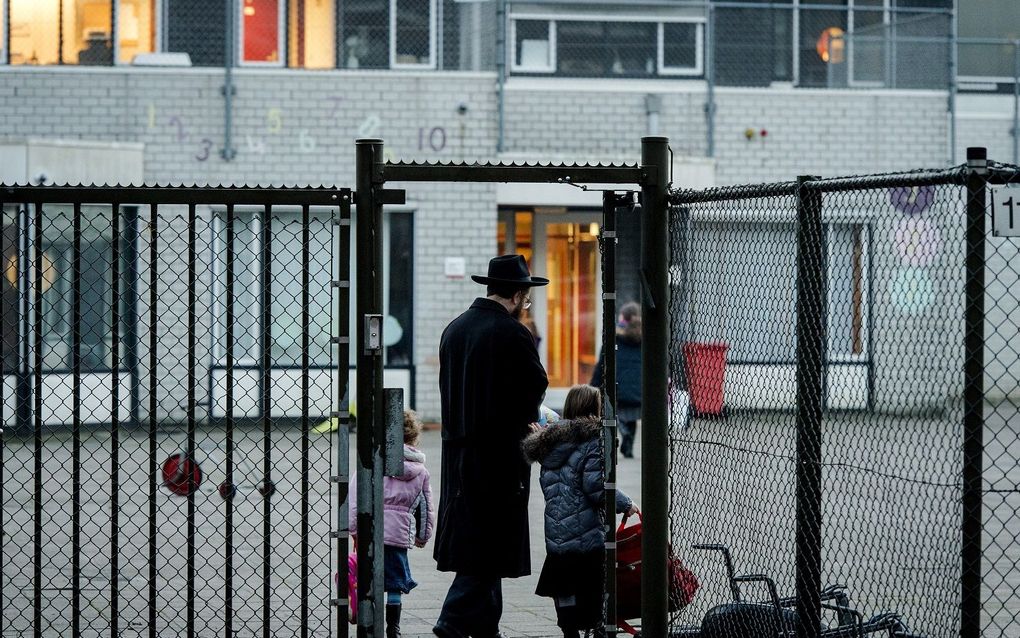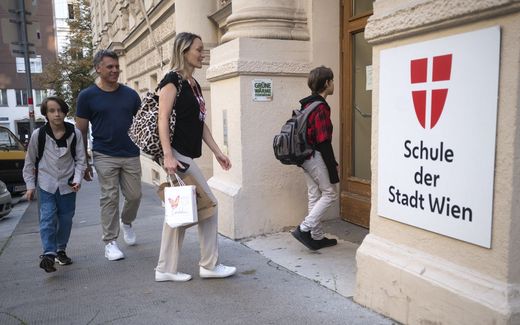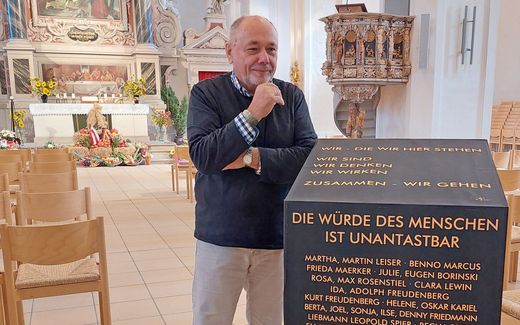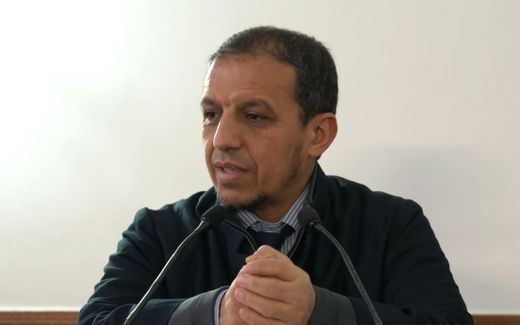Anti-Semitism grows as economy collapses

Dutch Jewish school with security measures because of safety concerns. Photo ANP, Robin van Lonkhuijsen
Western Europe
Anti-Semitism thrives in a country in crisis. When unrest increases in a society, hatred against the Jewish people also grows.
“You can be sure that people scapegoat the Jews in the current financial crisis. That also happened during the Covid pandemic”, Eddo Verdoner, the Dutch National Coordinator against anti-Semitism, said in an interview with the Dutch news website NU.nl. In a recently presented report, he pleads for speedy actions against anti-Semitism.
The Dutch professor of Jewish Studies, Bart Wallet, agrees with Verdoner. “In times of crises, people feel like they are losing control over their lives”, he says. Thus, they become more susceptive to conspiracy theories, which are mixed with anti-Semitism easily.
More accepted
Recently, there has been an increase in anti-Semitic incidents. In 2020, there were 135 cases, while in 2021, this number grew to 183, according to statistics from the Dutch Information Centre and Documentation Israel (CIDI). Also, the number of incidents registered for judicial prosecution increased from 38 in 2020 to 58 in 2021.
According to Verdoner, the taboo on anti-Semitic statements disappeared. “In the past, people would say something when an anti-Semitic statement was made. Nowadays, it is more accepted. On social media and the political debate, anti-Semitic terms appear time and time again”, he said in an interview with the Dutch newspaper Trouw.
Anti-Semitism can even grow when there are no Jews in sight, Verdoner explains. “What people shout in soccer stadiums affects school and work climate. It also incites hatred against foreigners. Therefore, anti-Semitism is a danger to the rule of law.” He sees that some Jews keep their identity hidden out of fear.
As an Anti-Semitism coordinator, Verdoner made a plan to battle the problem. It includes advice for government measures for social media platforms and more education about the lessons we can draw from anti-Semitism in the past.
Heavier penalty
In addition, it is important to teach Jewish organisations how to recognise anti-Semitism and deal with it, Verdoner says in the interview with Trouw. Also, politicians should give a good example by correcting each other when an anti-Semitic statement is made.
Also, Verdoner pleads for a heavier penalty for Holocaust denial. He thinks that this should no longer be part of “insulting a group” but that it should be included explicitly in the Dutch criminal code, the Dutch newspaper Nederlands Dagblad writes.
“You have to act against these ideas that marginalise Jews, disrupt society and open the door to other forms of hatred, for example, against Muslims”, Verdoner argues. “We have let anti-Semitism in too much and fight against it. In the political arena, at school, on the internet, everywhere.”
Related Articles






